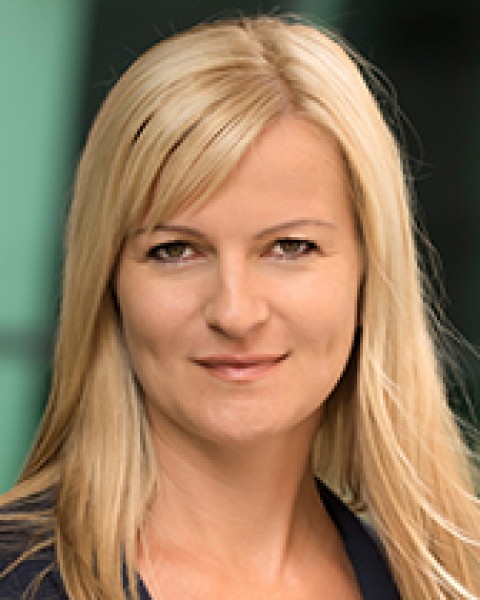



In today's Hungarian banking sector, there is no question that banks must carry out a digital transformation of their entire organisation, but market players are at various phases of this process, and the sector is very heterogeneous depending on products, functions and level of organisational development. In its recently published recommendations on comprehensive digital transformation, the National Bank of Hungary (MNB) advises accelerating digitalisation, urging banks to make better use of technological advances (AI, cloud, RPA), UX and their data assets. What will be in the focus of banks' digitalisation in the coming period? Where does the digital transformation of organisations, infrastructure and products start, and how does it continue? Will corporate customers also be in the focus of development in addition to retail customers? How do incumbents defend against challenger banks and fintech disruptors?
09:00 - 09:05
09:05 - 09:25
From e-commerce to banking - Live interview with the founder of ZEN, the new fintech player in Hungary
Moderator: Balázs Faluvégi, senior elemző, Portfolio
Conversation participants:
09:25 - 09:45
What does the MNB's recommendations on digital transformation tell banks?
Speaker: Anikó Szombati, Chief Digital Officer, National Bank of Hungary
09:45 - 10:35
Executive panel – Digital transformation in the Hungarian banking sector
Moderator: Zoltán Bán, CEO, Net Média (Portfolio Group)
Conversation participants:
10:35 - 10:55
Coffee break & Netoworking
The IT managers of banks and the key suppliers of the market are progressing with digital transformation shoulder to shoulder. The question is which stations of this comprehensive process are coming in the near future. What technologies will domestic financial institutions introduce in the near future, and in what areas? How will they continue their ongoing digital transformation? What do bank IT managers think about the central bank's digital recommendations, and what does the regulator expect of banks? What are the main global trends in banking digitalisation?
10:55 - 11:10
11:10 - 11:25
Artificial intelligence in the banking sector – How can we use this technology?
Speaker: Dr. Dániel Necz, lawyer, PhD student, expert - MI Koalíció
11:25 - 11:40
11:40 - 11:50
11:50 - 12:30
Panel discussion - Technological innovations and digitalisation at Hungarian lending institutions
Moderator: Tamás Kórász, partner, KPMG
Conversation participants:
12:30 - 13:30
Lunch break
The coronavirus pandemic has caused major disruptions in the operations of corporations and banks, and remote customer service has come into focus like never before. Digital customer service was a huge challenge for all businesses with large numbers of customers, both because of increased transaction numbers and with regard to providing a suitable UX. The companies able to ride the digitalisation wave were those that had agile, flexible organisations, well-functioning IT teams, and the IT architecture to service all this. Businesses able to innovate not only met the minimum requirements but also took a step ahead on the road to digitalisation. What have we learned during the pandemic, and what will the new normal be like? Corporate executives will discuss these issues in Section 2/B.
10:55 - 11:10
Paperless SME Lending - Customer-centric digitization in the small business segment
Speakers:
11:10 - 11:25
Corporate collaboration - What's the new normal?
Speaker: Balázs Balogh, Technical director, Gloster Nyrt.
11:25 - 11:40
11:40 - 11:50
11:50 - 12:35
Panel discussion - Innovation, UX and digitalisation in the shadow of the pandemic and in the new normal
Moderator: Dániel Dojcsák, Marketing Communications Director, Shiwaforce
Conversation participants:
12:35 - 13:30
Lunch break
We had never before used cards to pay in stores as much as we did last year, and cash payments are used less and less. As a result of the coronavirus pandemic and the launch of the instant payment system, a chunk of cash transaction have been permanently re-routed to electronic channels, MNB experts said. Providing an electronic payment option is now mandatory at every online register, and a central mobile payment solution is expected to arrive this year, so online payments are booming. This section will focus on the main trends in the payment sector, with the involvement of prominent market players and regulators.
13:30 - 13:45
PSD2 in Hungary - Open Banking and SCA
Speaker: Beáta Csapó, senior IT oversight expert, Hungarian National Bank
13:45 - 13:55
13:55 - 14:40
Panel discussion - Payment trends and fintech innovations in Hungary and abroad
Moderator: Ádám Turzó, Analyst, Portfolio
Conversation participants:
14:40 - 15:00
Coffee break & Netoworking
E-commerce has been one of the big winners of the coronavirus pandemic. In 2020, the ratio of online sales in global retail rose to 19% from 16% the previous year. The market has also picked up in Hungary as existing retailers are increasingly present in e-commerce, while new players have also entered the market. In e-commerce, IT and UX developments are in the foreground, as they should be since Hungary is still a country of abandoned baskets.
13:30 - 13:50
13:50 - 14:05
E-commerce in numbers - What happened in Hungary during the coronavirus epidemic?
Speaker: Péter Kurucz, Retailer Services Director, NielsenIQ
14:05 - 14:20
We shop whenever we're free - Here’s the Payment Experience Report 2021.
Speaker: Péter Mondovics, Member of Digital Commerce Alliance of Hungary, Marketing Manager, Mastercard
14:20 - 15:00
Panel discussion - E-commerce trends and innovations in the shadow of the coronavirus
Moderator: Nikolett Ferkó, Analyst, Portfolio
Conversation participants:
Some of the stars of Hungary's fintech sector are now active in the global market, but there still are a number of successful fintechs looking for a breakout opportunity. Local market players are still mostly using the B2B business model, but there are also several B2C players in the market. The question is how they can increase user numbers further. In any case, the coronavirus pandemic has shifted emphasis to digitalisation across the world. In this section, prominent representatives of Hungary's fintech sector will discuss the above issues.
15:00 - 15:15
15:15 - 15:30
15:30 - 15:45
The SEON story - how does a Hungarian fintech help reduce digital fraud worldwide?
Speaker: Krisztián Berecz, Head of Business Development, SEON Technologies Kft.
15:45 - 16:00
16:00 - 16:50
Panel discussion - Present and future of the fintech sector - Trends and growth opportunities
Moderator: Balázs Faluvégi, senior elemző, Portfolio
Conversation participants:
16:50 - 16:55
Closing remarks
Super Gold Sponsor
Gold Sponsor
Silver Sponsor
Bronze Sponsor
Official car rental partner
In association with
Exclusive coffee specialities sponsored by
Media Partner
The sponsor of maximum health and safety
Organisation, general questions

Sponsorship

Program
